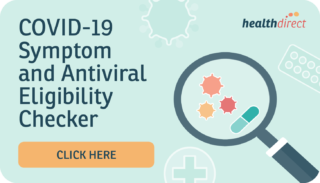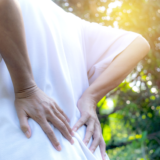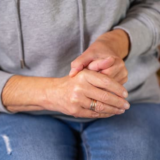Know the Facts about COVID-19
For the latest info about COVID-19, visit the Australian Government, Department of Health website.
For information specifically for people with arthritis and other musculoskeletal conditions, the Australian Rheumatology Association has general info about COVID-19 and COVID vaccinations.
Symptom checker
Healthdirect Australia has developed a COVID- 19 Symptom and Antiviral Eligibility Checker, an online self-guided tool to help you find out if you need to seek medical help.
The COVID-19 Symptom Checker includes questions about travel history, contact with known cases and the clinical symptoms associated with COVID-19, including fever, sore throat, cough and shortness of breath. It provides you with advice on what you should do next, such as calling ahead before a visit to a GP or emergency department.
How we can help
Call our Help Line and speak to our nurses. Phone 1800 263 265 or email helpline@msk.org.au.
We can help you find out more about:















